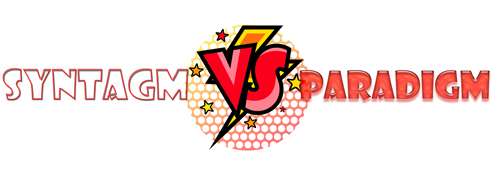Syntagm and Paradigm Connection
Syntagm and Paradigm are tightly connected. So, we can talk about the syntagmic and the paradigmatic as relating to each other.
Both are terms that we use in the discipline of semiotics which is a process of undertaking textual analysis.
More specifically both terms allow us to undertake structural analysis because we are thinking about how narratives are put together and organised.
Syntagm refers to combinations of words or images.
Paradigm refers to how we can create differentiation in meaning (we might write: "the boy cried" but if we write "the man cried" there is a change in meaning, albeit a subtle one)
Syntagm
Syntagm refers to "an orderly combination of interacting signifiers which forms a meaningful whole." Syntagm refers to where you put a word or an image in a sequence. See the Oxford Reference definition here.
A prime example of a syntagm is a written sentence: it is a syntagm of words.
"Syntagmic relations are the various ways in which constituent units within the same text may be structurally related to each other." (Oxford Reference)
Therefore, each shot in a film scene demonstrates this orderly combination of interacting signifiers. Another example would be each 'frame' of a comic.
…